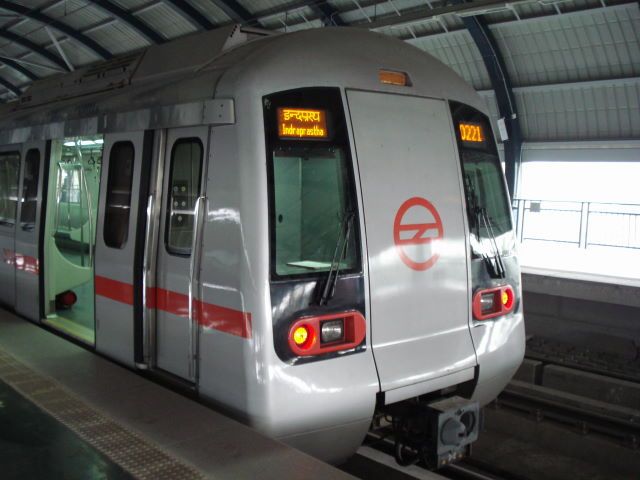Listing the Delhi Metro on the stock exchange is one way to enforce financial and project discipline, says A K Bhattacharya.
 A little over 20 years ago, a company was formed to build and operate a mass rapid transport system in Delhi.
A little over 20 years ago, a company was formed to build and operate a mass rapid transport system in Delhi.
The Delhi Metro Railway Corporation was thus born and in about seven years launched its inaugural service, though on a very short stretch across the Yamuna - from Shahdara to Tis Hazari. That was on December 25, 2002.
Execution of projects was a skill that Delhi Metro acquired with apparent ease fairly early in its existence.
Its first phase of 65 kilometres was completed two years and nine months ahead of schedule - a feat rarely achieved by any company in India, let alone a state-owned entity.
Its second phase of 125 kilometres was completed in less than five years, once again a commendable achievement considering that many stretches in the second phase required underground work.
If you add to all this its quiet efficiency in terms of punctuality of service and cleanliness in trains and stations, skilful management of a metro network and an enviable safety record, you will realise why Delhi Metro is close to becoming a model mass rapid transport system that almost every other big city in the country is trying to emulate.
Already, the network of Delhi Metro covers a distance of 213 kilometres and another 137 kilometres would be added to complete its third phase, expanding the transport system's footprint to cover a distance of 350 kilometres.
At present, it carries more than 2.5 million passengers a day on average and with the completion of the remaining kilometres in the third phase and the addition of 18 more interchange stations to the existing nine, more passengers would use the service with greater ease and less travelling time.
Nothing could be more welcome for a city that is in dire need of an efficient and wide public transport network to dissuade the use of private vehicles and thereby reduce vehicular emission polluting the environment.
The problem, however, is that Delhi Metro is now showing signs of strain with respect to its project execution skills and financial management expertise.
The blame for both the slippages should rest as much on Delhi Metro's top management as on the political leadership at the Centre and in the Delhi government.
Remember that Delhi Metro is a joint venture between the Union government and the government of Delhi, with both of them having a 50 per cent share each.
Consider the following. The third phase of Delhi Metro was due to be completed by the end of 2016.
But the top management of Delhi Metro has sprung a surprise on everyone by suggesting that the completion may be delayed by about a year.
Indeed, some stretches in the third phase have already been delayed.
Why did such a delay take place and why was it allowed?
If the introduction of road-use rationing could be contemplated, it is baffling that a delay in completing the third phase of Delhi Metro is yet to prompt the two principal shareholders of the company to find out what needs to be done to prevent such a slippage.
The second area of concern pertains to Delhi Metro's fare structure. The last fare revision took place in 2009.
A fare review is overdue for long. Proposals to that effect have fallen prey to bureaucratic delays and political indifference.
Left to Delhi Metro, its management would have taken the required steps to raise fares as it is now incurring a loss.
It did slash unreasonably high fares on the airport route by up to 50 per cent to improve traffic last September, a move that has paid off so far. But on the question of raising fares, its hands are tied. Nor has the proposal to allow periodical fare review on an automatic basis been cleared.
What should be done? Both the Centre and the Delhi government should dilute their combined shareholding to 51 per cent and list Delhi Metro on the stock exchanges.
This will make the Delhi Metro management more accountable and it cannot go scot-free without explaining project execution delays.
The current shareholders seem to be unperturbed as much by such delays as by the failure to revise fares despite its higher operational costs.
Given such apathy, disinvestment in Delhi Metro seems to be the only option, in the hope that market accountability will help enforce financial and project discipline, both of which seem to be missing now.











